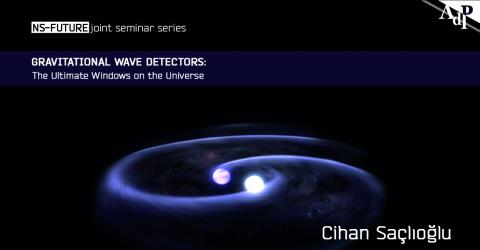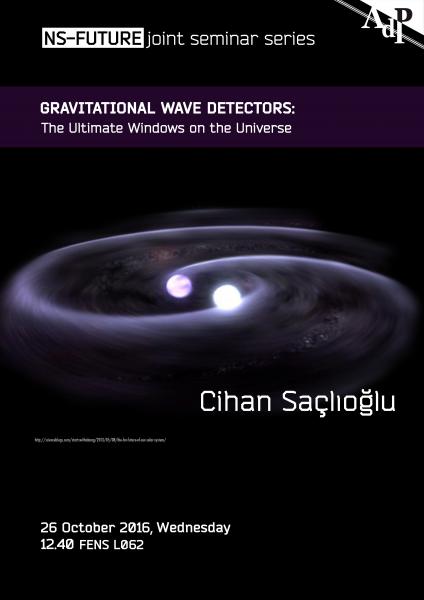NS-FUTURE Joint Seminar by Cihan Saçlıoğlu

“Gravitational Wave Detectors: The Ultimate Windows on the Universe"
Telescopes give us information about astronomical events – motions of planets, pulsars, black holes, supernovae, the Big Bang – by picking up photons or neutrinos generated by such distant sources a long time ago. These standard “messenger particles” have serious shortcomings: They can be blocked by obstacles (the atmosphere, for example); furthermore, they tell us nothing about faraway objects that do not produce neutrinos or photons. Unfortunately, about 95% of the matter-energy in the universe falls into that category. Nevertheless, even dark matter or energy can be detected by gravitational waves, which they cannot avoid emitting. Such waves are very hard to observe (a great disadvantage), but cannot be blocked by anything (a great advantage). Thus in principle we should be able to study Dark Matter, and also peek all the way into the Big Bang that happened 13.8 Billion years ago. Physicists are learning to detect these exceedingly weak signals by new gravitational wave detectors, which can be thought of as gravitational telescopes. The detector LIGO has already caught the waves from black hole mergers, while others like LISA, are in the advanced design stage.


